
Goverment of Kerala
Revenue Department
Krishnapuram Village Office
Village Office
Official Web Portal

Goverment of Kerala
Official Web Portal
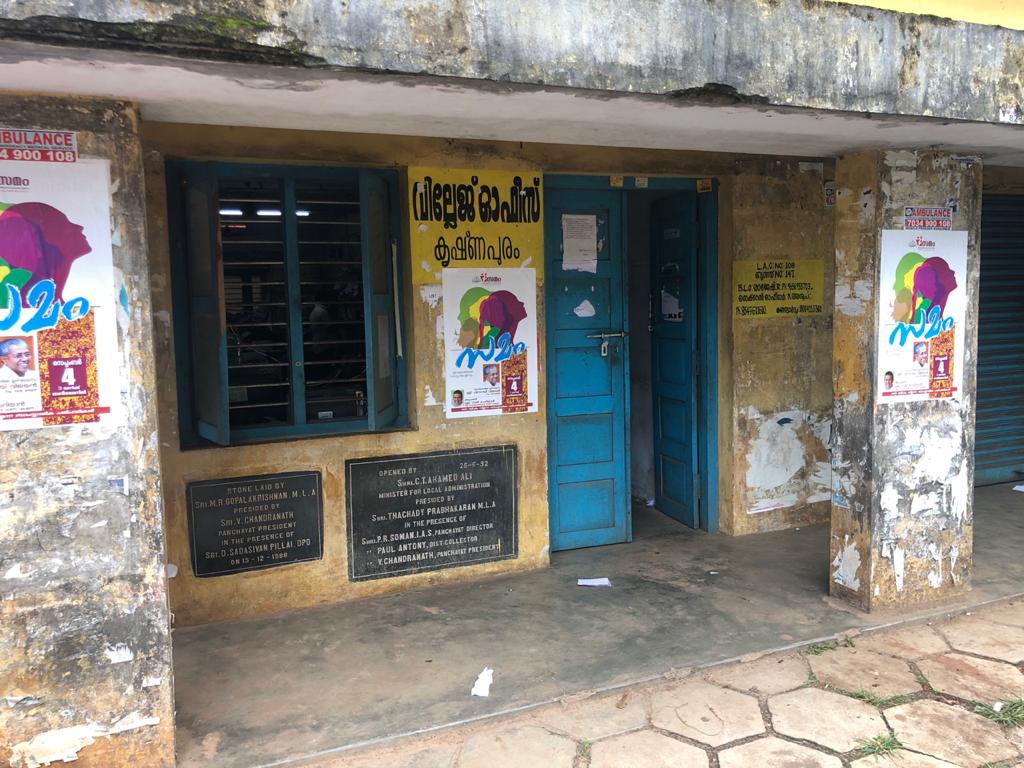
The building in which the Village Office functioned was demolished and the Office is presently functioning at the Panchayath Cultural Centre Krishnapuram
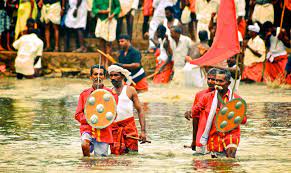 Ochira Kali is a two-day celebration that will be starting from the Malayalam month Midhunam 1 and continue till Midhunam 2. The festival commemorates the historic medieval period battle between the past Kayamkulam and Ambalapuzha kingdoms. The festival basically falls in monsoon and the festival is connected to the Ochira Parabrahma temple.
Ochira Kali is a two-day celebration that will be starting from the Malayalam month Midhunam 1 and continue till Midhunam 2. The festival commemorates the historic medieval period battle between the past Kayamkulam and Ambalapuzha kingdoms. The festival basically falls in monsoon and the festival is connected to the Ochira Parabrahma temple.
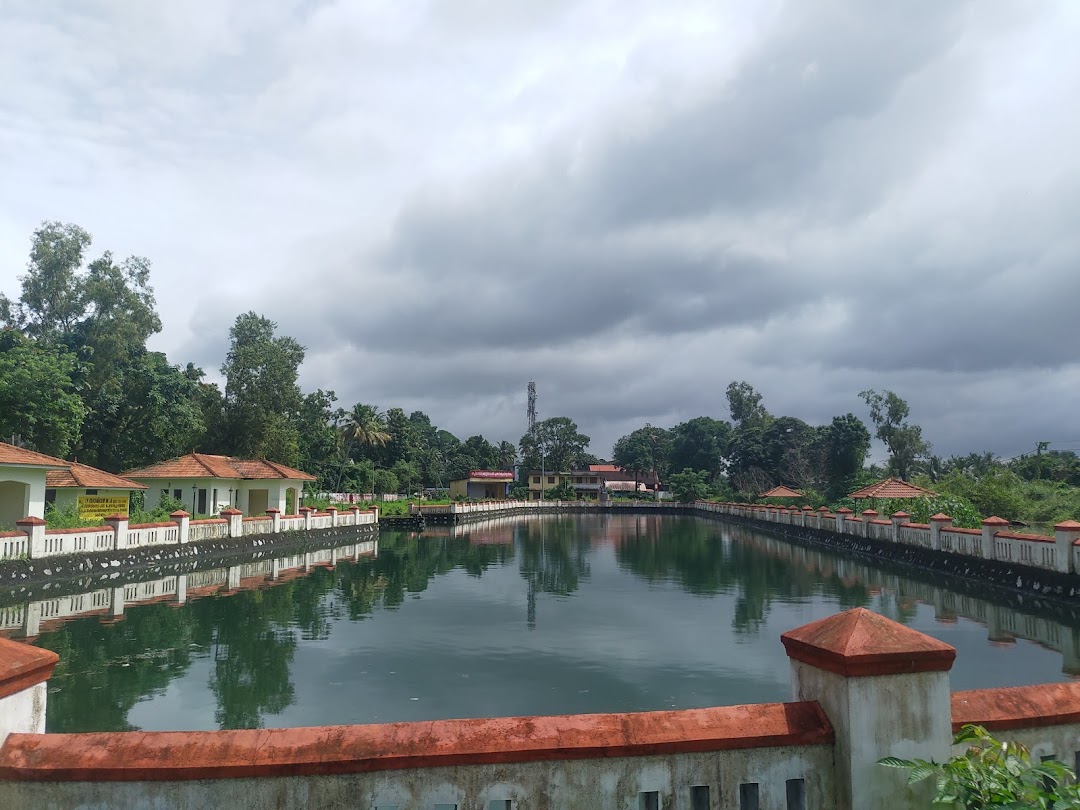 The age-old Athirthi Chira at Krishnapuram, near Kayamkulam, the place where the horses of the Kayamkulam kingdom were given a bath according to the legend, will be converted into a cultural tourist center by the State Government. The Athirthi chira, which is situated at a Stone's throw from the Krishnapuram palace known for its Gajendra Moksham paintings, will have a newfound look once the cultural tourist center project is completed
The age-old Athirthi Chira at Krishnapuram, near Kayamkulam, the place where the horses of the Kayamkulam kingdom were given a bath according to the legend, will be converted into a cultural tourist center by the State Government. The Athirthi chira, which is situated at a Stone's throw from the Krishnapuram palace known for its Gajendra Moksham paintings, will have a newfound look once the cultural tourist center project is completed
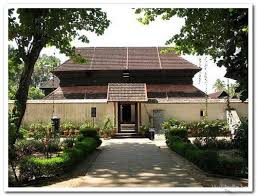 The Krishnapuram Palace is a tourist attraction, just 400 m from NH-47 located between Kayamkulam town and Oachira.The palace is maintained by the Archaeological Department and contains exhibits that belonged to the Palace and its former occupant, the Travancore Maharaja Marthanda Varma.
The Krishnapuram Palace is a tourist attraction, just 400 m from NH-47 located between Kayamkulam town and Oachira.The palace is maintained by the Archaeological Department and contains exhibits that belonged to the Palace and its former occupant, the Travancore Maharaja Marthanda Varma.
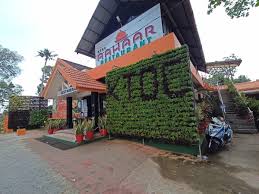 AAHAAR Restaurant - A KTDC Unit : Salem - Kochi - Kanyakumari HighWay 66- 0.5 KM distance.
AAHAAR Restaurant - A KTDC Unit : Salem - Kochi - Kanyakumari HighWay 66- 0.5 KM distance.
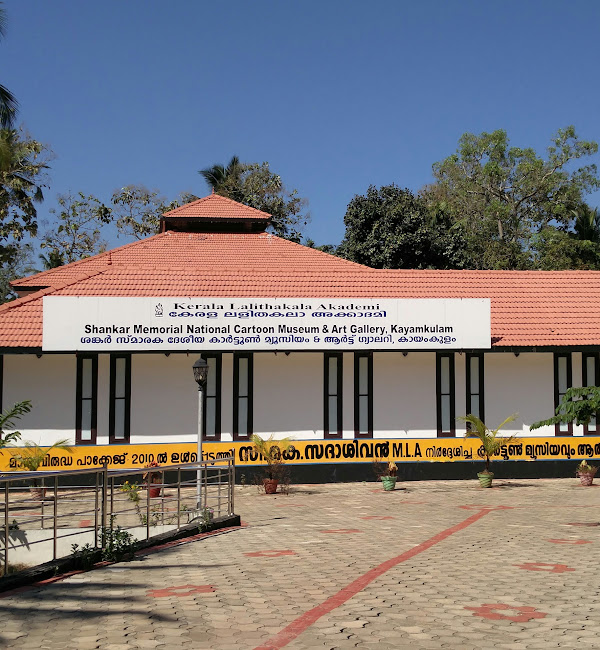 The National Cartoon Museum and Art Gallery which is a tribute to the cartoonist Shankar is a good initiative by the Kerala Government. Shri Shankar was a political cartoonist for several decades and the museum gives an opportunity to the public to have an insight to the life of Shri
The National Cartoon Museum and Art Gallery which is a tribute to the cartoonist Shankar is a good initiative by the Kerala Government. Shri Shankar was a political cartoonist for several decades and the museum gives an opportunity to the public to have an insight to the life of Shri
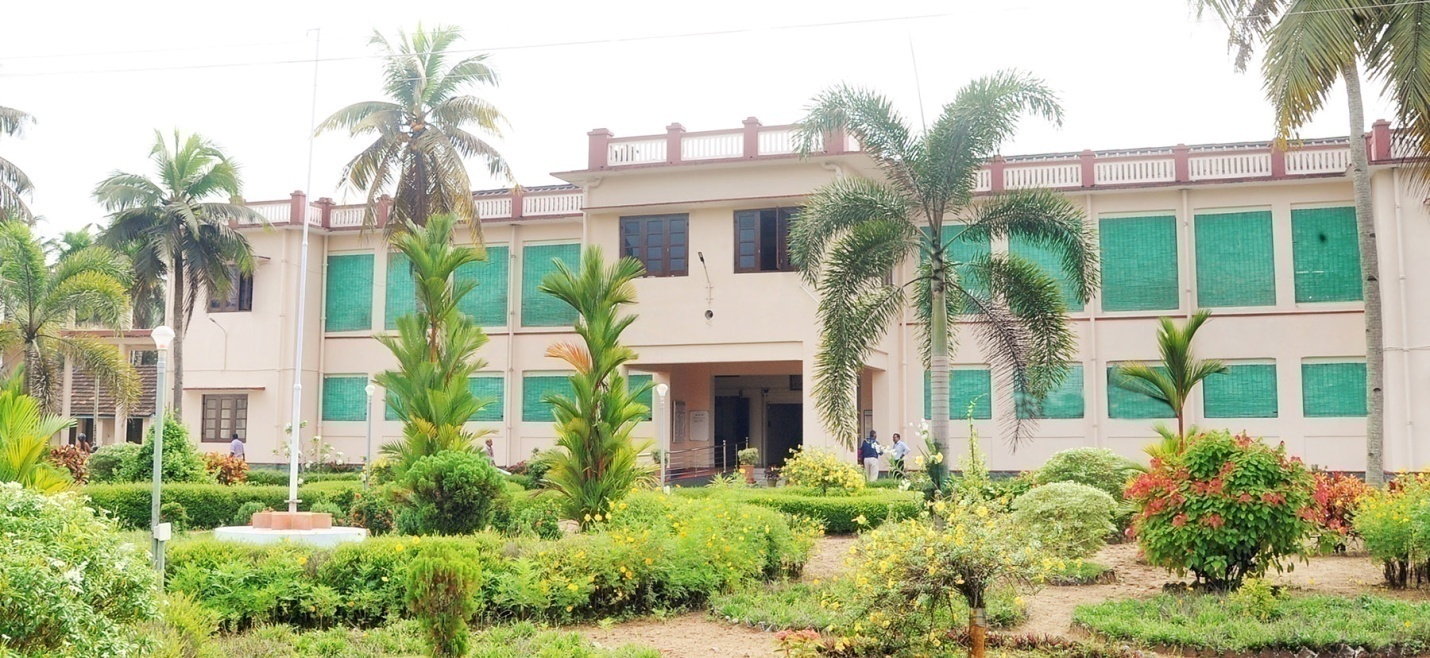 CPCRI Kishnapuram - The Central Coconut Research Station (CCRS) at Kayamkulam was established in 1948 by the Indian Central Coconut Committee.
CPCRI Kishnapuram - The Central Coconut Research Station (CCRS) at Kayamkulam was established in 1948 by the Indian Central Coconut Committee.
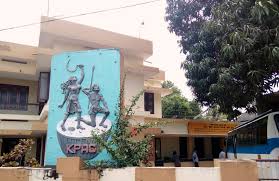 Kerala People's Arts Club (KPAC) is a theatrical movement in Kayamkulam, Kerala, India. It was formed in the 1950s by a group of individuals having close ties with Left-wing politics parties of Kerala. KPAC was very influential in popularising the Communist movement in Kerala.
Kerala People's Arts Club (KPAC) is a theatrical movement in Kayamkulam, Kerala, India. It was formed in the 1950s by a group of individuals having close ties with Left-wing politics parties of Kerala. KPAC was very influential in popularising the Communist movement in Kerala.
 S. Guptan Nair was born at Krishnapuram near Kayamkulam on August 22, 1919 to Sankara Pillai, a known ayurvedic scholar and physician and his wife, Kali Amma.
S. Guptan Nair was born at Krishnapuram near Kayamkulam on August 22, 1919 to Sankara Pillai, a known ayurvedic scholar and physician and his wife, Kali Amma.
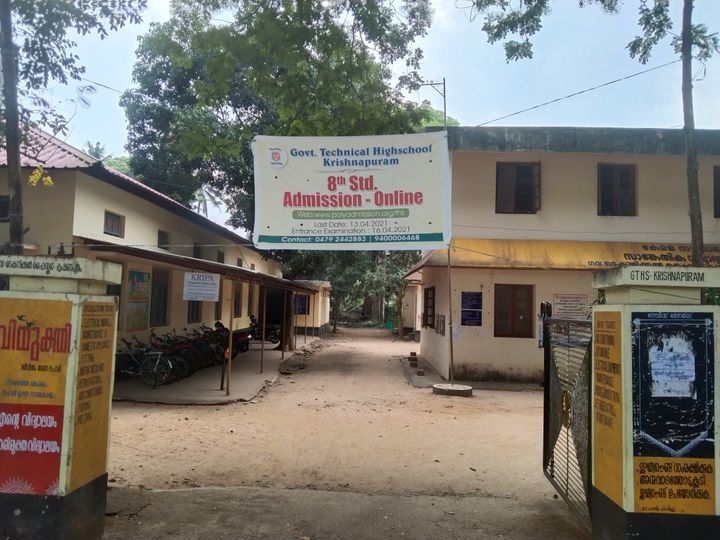 Junior Technical School(JTS) and Vocational Higher Secondary School(VHSC)- 0.6 KM distance.
Junior Technical School(JTS) and Vocational Higher Secondary School(VHSC)- 0.6 KM distance.
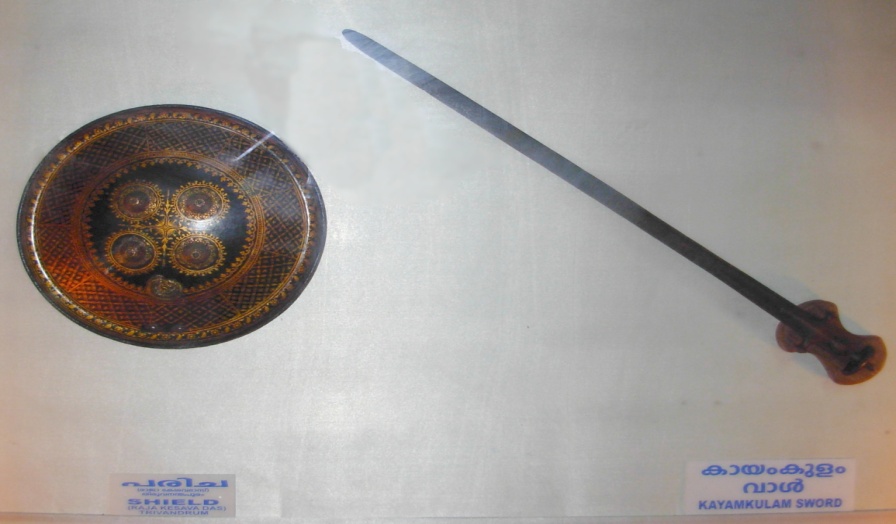 The Kayamkulam Vaal ('Vaal' means "sword") is an important exhibit in the museum. The significance of the sword is that its both sides are sharpened and thus it is more dangerous than any other martial weapon. It is said to have been used by the Kayamkulam Rajas in the 18th century and hence was of special attraction to the king.
The Kayamkulam Vaal ('Vaal' means "sword") is an important exhibit in the museum. The significance of the sword is that its both sides are sharpened and thus it is more dangerous than any other martial weapon. It is said to have been used by the Kayamkulam Rajas in the 18th century and hence was of special attraction to the king.
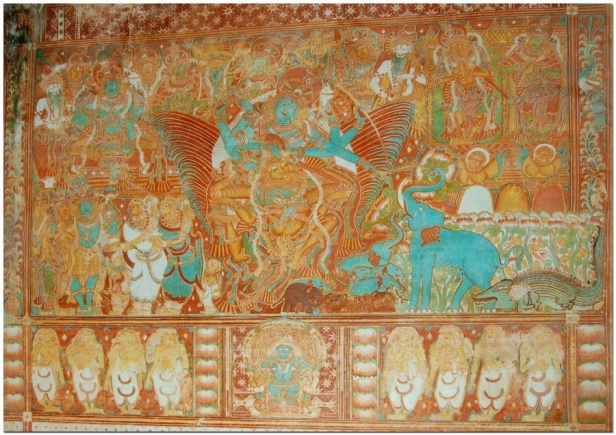 Within the Krishnapuram palace is the archaeological museum which has an exhibit of the Gajendra Moksham a 3 metres (9.8 ft) high mural,which is the largest single piece of mural painting so far discovered in Kerala. The literal meaning of 'Gajendra Moksham' is the "salvation or Moksha of the elephant king Gajendra." The theme of the mural is mythological and depicts an elephant saluting Lord Vishnu in devotion while the other minor Gods, Goddesses and saints look on. Lord Vishnu was the family deity of the Kayamkulam Kings. This mural, in a fusion of colours and expressions, was placed prominently at the entrance to the palace from the pond to enable the kings to worship the deity after their daily ablutions.
Within the Krishnapuram palace is the archaeological museum which has an exhibit of the Gajendra Moksham a 3 metres (9.8 ft) high mural,which is the largest single piece of mural painting so far discovered in Kerala. The literal meaning of 'Gajendra Moksham' is the "salvation or Moksha of the elephant king Gajendra." The theme of the mural is mythological and depicts an elephant saluting Lord Vishnu in devotion while the other minor Gods, Goddesses and saints look on. Lord Vishnu was the family deity of the Kayamkulam Kings. This mural, in a fusion of colours and expressions, was placed prominently at the entrance to the palace from the pond to enable the kings to worship the deity after their daily ablutions.
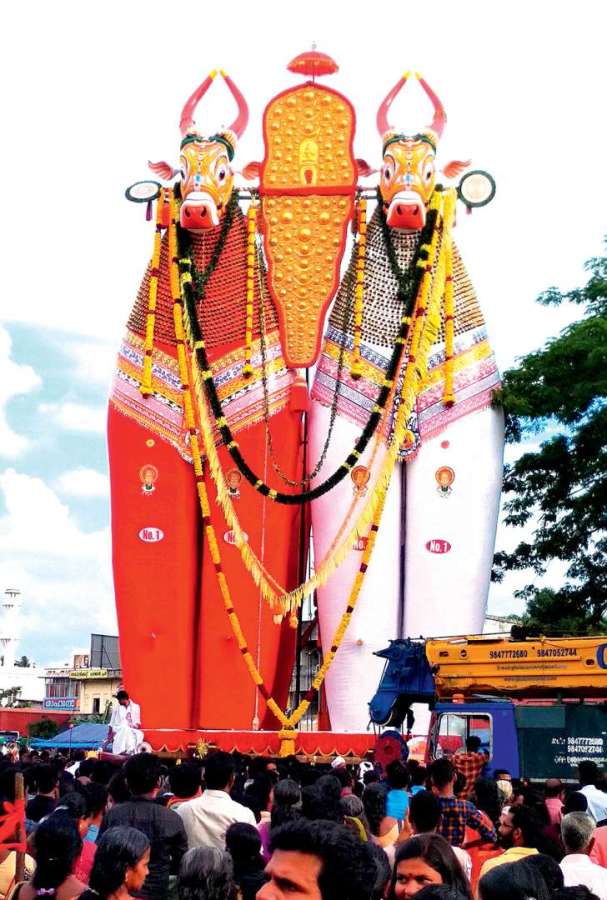 Unlike other traditional temples, the Ochira Temple situated near the National Highway between Kollam and Alappuzha does not have a definite structural layout, idol or mode of worship. Here, the whole concept of worship revolves around the Parabrahmam or the universal consciousness. It is this uniqueness that makes this temple stand apart from the rest
Unlike other traditional temples, the Ochira Temple situated near the National Highway between Kollam and Alappuzha does not have a definite structural layout, idol or mode of worship. Here, the whole concept of worship revolves around the Parabrahmam or the universal consciousness. It is this uniqueness that makes this temple stand apart from the rest
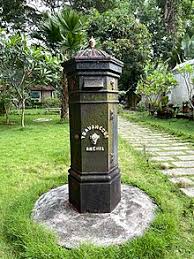 Anchal Post was the postal service of Krishnapuram Palace. It was the early postal service started in the kingdom of Travancore and Cochin before Independence of India. It was started in Travancore in 1729 by Anizham thirunal Marthandavarma and later in Cochin in 1770s.
Anchal Post was the postal service of Krishnapuram Palace. It was the early postal service started in the kingdom of Travancore and Cochin before Independence of India. It was started in Travancore in 1729 by Anizham thirunal Marthandavarma and later in Cochin in 1770s.
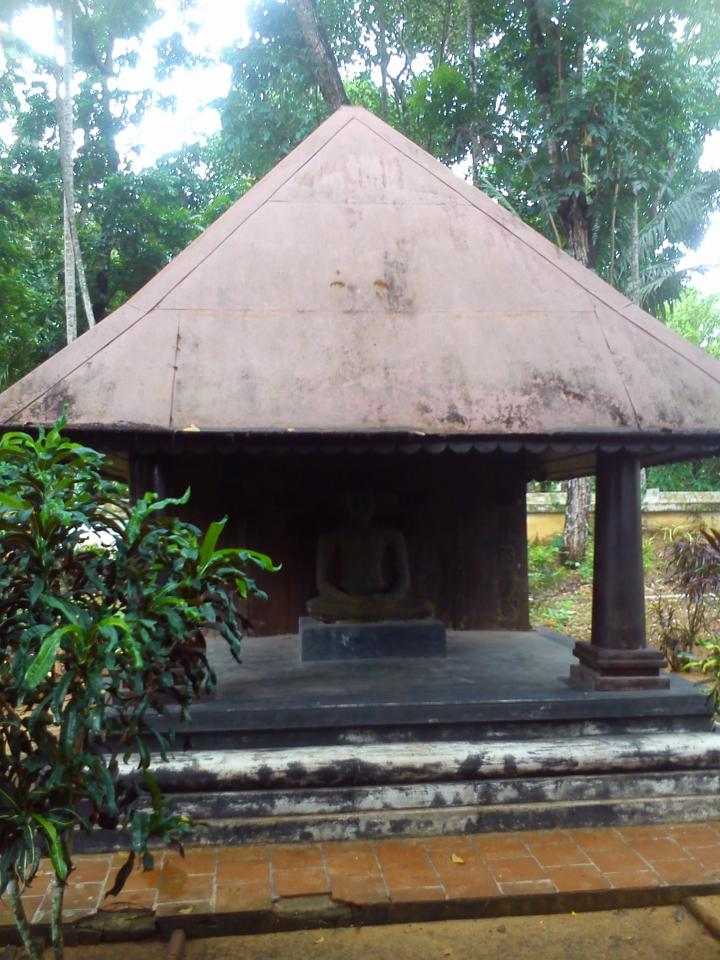 Buddha mandapam (hall) is where an attractive statue of one of the four antique Buddhas of the 10th century, which were recovered in recent times in ponds and fields in Alappuzha district is displayed. The Buddha mandapam (Buddha statue installed here predates the building of the palace is located in the finely landscaped and tended garden with profusion of flower plants (endemic to Kerala) that surrounds the palace complex.
Buddha mandapam (hall) is where an attractive statue of one of the four antique Buddhas of the 10th century, which were recovered in recent times in ponds and fields in Alappuzha district is displayed. The Buddha mandapam (Buddha statue installed here predates the building of the palace is located in the finely landscaped and tended garden with profusion of flower plants (endemic to Kerala) that surrounds the palace complex.